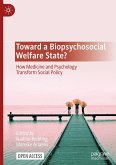Revision with unchanged content. The conventional understanding now is that with globalization and the advance ments of information and communication technologies (ICTs), geography has lost its meaning; national borders have lost their significance; and the end of the nation-state has come. This book argues that the nation-state is not dead, but its power is restructured. This book offers a theoretical framework/model that allows researchers to pinpoint the emergent influences on national Internet policy making as a result of globalization forces. A particular focus is set on Turkey to demonstrate the feasibility of the model. You will find information and analysis on major players, trends, and stra tegies in Internet policy making in Turkey. This book is addressed to researchers, teachers and students in Communications. It is also directed towards researchers interested specifically in Internet related policy, Tele com mu nication in developing regions, and Globalization.
Bitte wählen Sie Ihr Anliegen aus.
Rechnungen
Retourenschein anfordern
Bestellstatus
Storno








